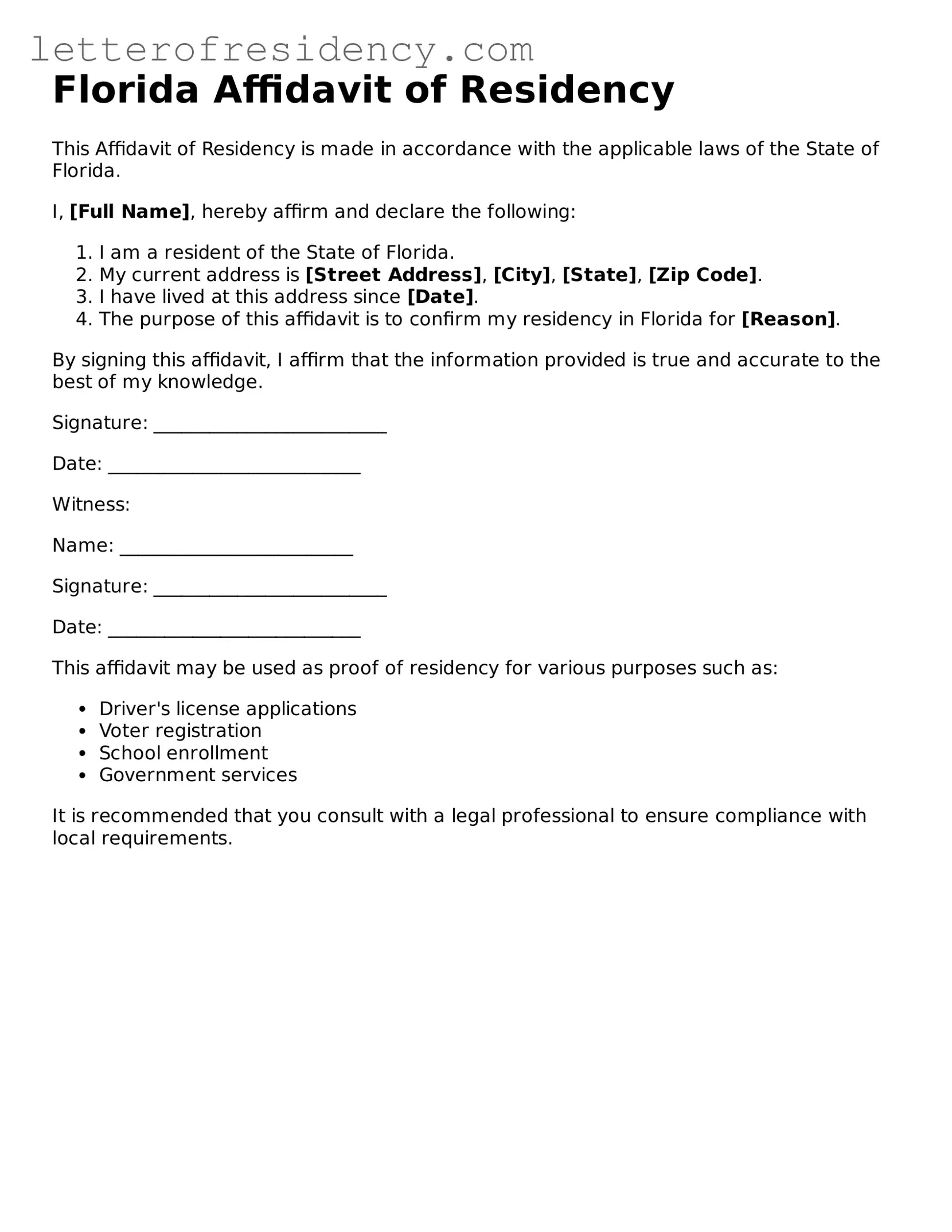What You Should Know About This Form
-
What is the Florida Affidavit of Residency form?
The Florida Affidavit of Residency form is a legal document used to verify a person's residence in the state of Florida. This form is often required for various purposes, such as enrolling a child in school, obtaining a driver's license, or applying for certain government benefits. By completing this affidavit, an individual attests to their current residential address and confirms their residency status.
-
Who needs to complete the Affidavit of Residency?
Typically, the Affidavit of Residency is needed by individuals who are establishing their residence in Florida. This includes new residents, students living away from home, or those applying for benefits that require proof of residency. It is important for anyone who needs to demonstrate their Florida residency to complete this form accurately.
-
How do I complete the Affidavit of Residency form?
To complete the Affidavit of Residency form, you will need to provide personal information such as your name, current address, and the date you moved to Florida. Additionally, the form may require the signature of a witness or notary public to validate the information provided. Make sure to double-check all details for accuracy before submitting the form.
-
Where do I submit the completed Affidavit of Residency?
The submission location for the Affidavit of Residency can vary based on its intended use. For instance, if you are using the affidavit for school enrollment, you may need to submit it directly to the school district. For other purposes, such as applying for a driver's license, you may need to present it at your local Department of Motor Vehicles (DMV) office. Always verify the specific requirements of the institution or agency requesting the affidavit.
-
What happens if I provide false information on the Affidavit of Residency?
Providing false information on the Affidavit of Residency can lead to serious consequences. This may include legal repercussions, such as fines or criminal charges, depending on the severity of the misrepresentation. Additionally, any benefits or services obtained through the use of a fraudulent affidavit could be revoked. It is crucial to provide truthful and accurate information to avoid these potential issues.
